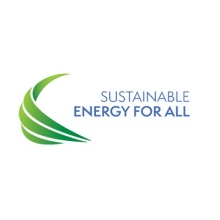

SE4All Energy Access Online Forum
Authors
-
 Alekhya Datta (1)
Alekhya Datta (1)
-
 Dr.Sukumar Kar (1)
Dr.Sukumar Kar (1)
-
 Debajit Palit (5)
Debajit Palit (5)
-
Barbara Ungari (1)
-
 Mimi Kalinda (1)
Mimi Kalinda (1)
-
 Yann Loic Tanvez (19)
Yann Loic Tanvez (19)
-
 Rose Mutiso (1)
Rose Mutiso (1)
-
 Boris Lopicich (3)
Boris Lopicich (3)
-
 Gunjan Gautam (1)
Gunjan Gautam (1)
-
 Julia Heckmann (1)
Julia Heckmann (1)
-
 Chad Lipton (7)
Chad Lipton (7)
-
 Subaskar Sitsabeshan (2)
Subaskar Sitsabeshan (2)
-
 Laura Sundblad (1)
Laura Sundblad (1)
-
 Sebastian Groh (1)
Sebastian Groh (1)
-
 Xiaochen Zhang (1)
Xiaochen Zhang (1)
-
 Ruchi Soni (1)
Ruchi Soni (1)
-
 Carole LeBlanc (3)
Carole LeBlanc (3)
-
 Andrew Carter (1)
Andrew Carter (1)
-
 Mahesh Bhave (2)
Mahesh Bhave (2)
-
 Ranisha basnet (1)
Ranisha basnet (1)
-
 walter Ivison (2)
walter Ivison (2)
-
 Shyam Patra (1)
Shyam Patra (1)
Blog » "Slow Money" for a small-scale world
"Slow Money" for a small-scale world
Necessarily, a new paradigm with sustainable goals to fight climate change will involve a change from the current Western values of consumption and reification of nature, to decentralised and smaller projects that allow a better management of natural resources in different communities. In this context, the concept of slow-money has emerged as a tangible alternative to decentralising financial sources.
With new actors are emerging from the public and private sector, a socially integrated model is being articulated in several countries and regions, showing how “the innovation chain from the creation of a niche market to widespread adoption and dominance [of a low carbon economy] will probably have to be managed by government and backed by society". (Fouquet, 2010). These players seem to share essential principles of slow-money, such as being socially responsible, sustainable, direct, individual, local, and diverse.
The concept of slow-money is originally from the food industry, and has to do with providing funding to projects that achieve those principles; “money that is too fast is money that has become so detached from people, place, and the activities that it is financing that not even the experts understand it fully”(Tasch 2010: 19). Luckily, many private investors aim to incorporate socially responsible principles in their donations and are developing other ways to increment the contributions, including by donations, recoverable grants, forgivable debts, convertible debts, advanced sales, crowdfunding platforms and Corporate Social Responsibility (CSR) Programs; so far, there have been only few efforts to adequately address these funding mechanisms, but the trend seems to be growing in the past couple of years.
Some of the benefits of slow-money, besides the realisation of the project itself are empowerment of the community and the ability of community-managed programs of natural resources. Certainly, if policymakers find ways in which the access to slow-money mechanisms becomes more flexible, they will have a strong and deep impact over the current energy and agricultural transitions.
[1] Cox, M., G. Arnold, and S. Villamayor Tomás. 2010. A review of design principles for community-based natural resource management.Ecology and Society 15(4): 38.
[2] Fouquet, Roger (2010) The slow search for solutions: lessons from historical energy transitions by sector and service Energy Policy, 38 (11). 6586-6596. ISSN 0301-4215.
NGO: Amis des Etrangers au Togo (ADET) is ready to access this fund for rural electification. Thank you for this information.